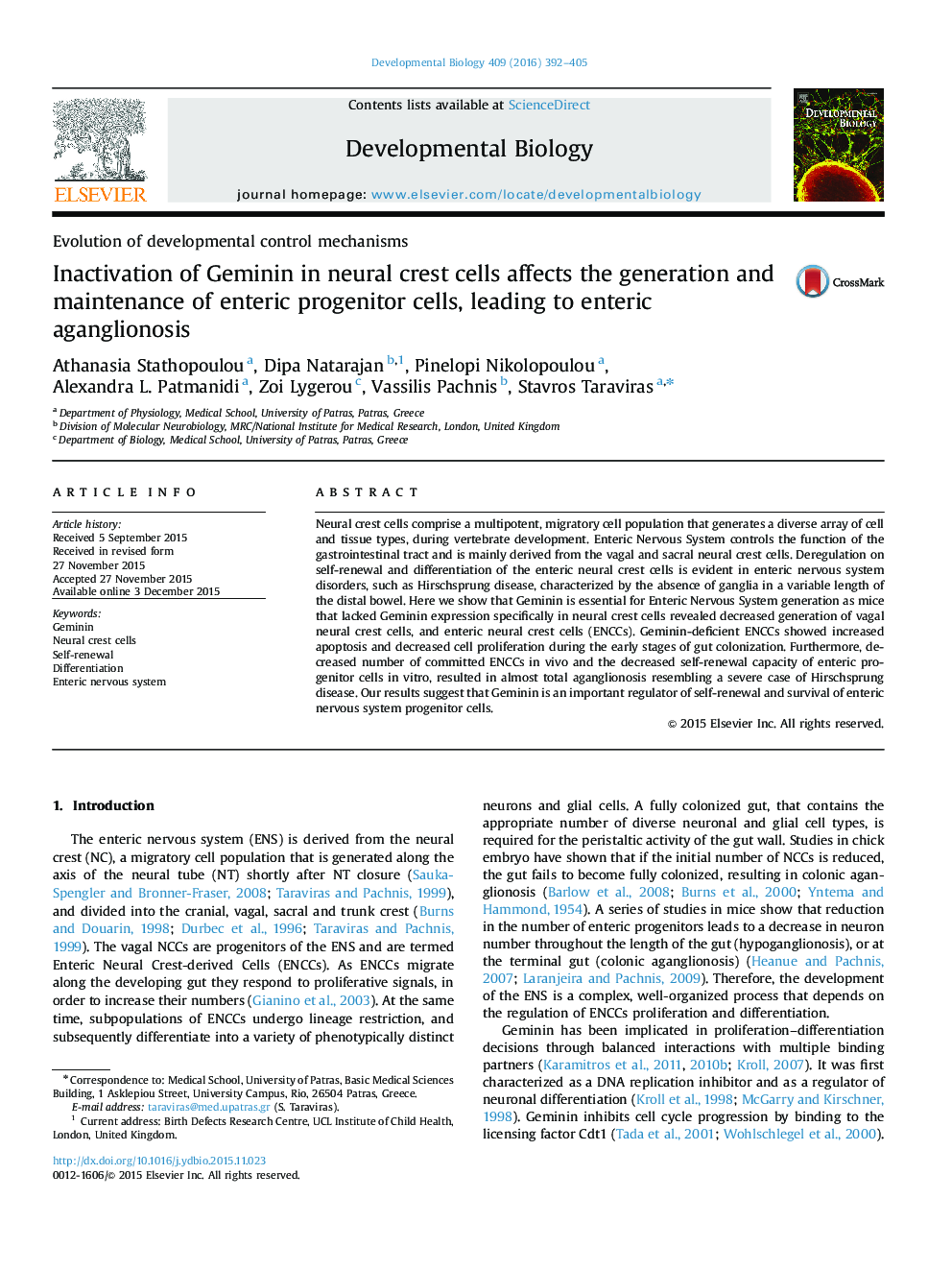| Article ID | Journal | Published Year | Pages | File Type |
|---|---|---|---|---|
| 10931374 | Developmental Biology | 2016 | 14 Pages |
Abstract
Neural crest cells comprise a multipotent, migratory cell population that generates a diverse array of cell and tissue types, during vertebrate development. Enteric Nervous System controls the function of the gastrointestinal tract and is mainly derived from the vagal and sacral neural crest cells. Deregulation on self-renewal and differentiation of the enteric neural crest cells is evident in enteric nervous system disorders, such as Hirschsprung disease, characterized by the absence of ganglia in a variable length of the distal bowel. Here we show that Geminin is essential for Enteric Nervous System generation as mice that lacked Geminin expression specifically in neural crest cells revealed decreased generation of vagal neural crest cells, and enteric neural crest cells (ENCCs). Geminin-deficient ENCCs showed increased apoptosis and decreased cell proliferation during the early stages of gut colonization. Furthermore, decreased number of committed ENCCs in vivo and the decreased self-renewal capacity of enteric progenitor cells in vitro, resulted in almost total aganglionosis resembling a severe case of Hirschsprung disease. Our results suggest that Geminin is an important regulator of self-renewal and survival of enteric nervous system progenitor cells.
Related Topics
Life Sciences
Biochemistry, Genetics and Molecular Biology
Cell Biology
Authors
Athanasia Stathopoulou, Dipa Natarajan, Pinelopi Nikolopoulou, Alexandra L. Patmanidi, Zoi Lygerou, Vassilis Pachnis, Stavros Taraviras,
